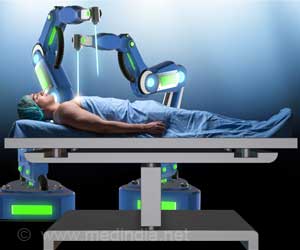
Head and neck cancer affects the lip, the mouth, the nasal cavity, sinuses, salivary glands, pharynx and larynx. It is the eighth most common cancer in the world. The diagnosis is often delayed due to a lack of screening methods and there is a high risk of it leading to a new cancer in the aero-digestive tract. This calls for regular check-ups throughout life.
The study involved a cross-sectional clinical trial, where the exhaled breath of 80 volunteers, including head and neck cancer patients, those with lung cancer, and healthy controls, was collected.
The NA-NOSE identified the differences in 62 samples, which were measured statistically. A different analysis of 40 breath samples using gas chromatography and mass spectrometry analyses supported the results produced by the device.
The researchers said that the device could "clearly distinguish" between head and neck cancer patients and healthy controls; lung cancer patients and healthy controls; and, head and neck cancer patients and lung cancer patients.
NA-NOSE uses an array of five gold and platinum nanoparticle sensors and computer algorithms to detect patterns of volatile organic compounds in exhaled breath. Organic ligands pick up particular organic compounds present in the breath.
Advertisement
Now, the results need to be repeated in larger studies, to test the feasibility of developing the NA-NOSE as a diagnostic and screening tool.
Professor Hossam Haick, who led the research team, hopes that their study, published in the British Journal of Cancer, will lead to the development of a fast, reliable and cost-effective tool for the differential diagnosis of head and neck cancer, and possibly also a screening tool, based on the device they have designed.
Advertisement
Source-Medindia













